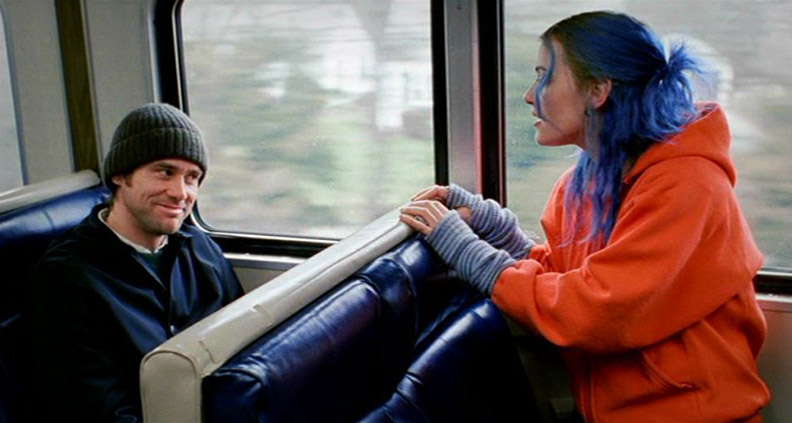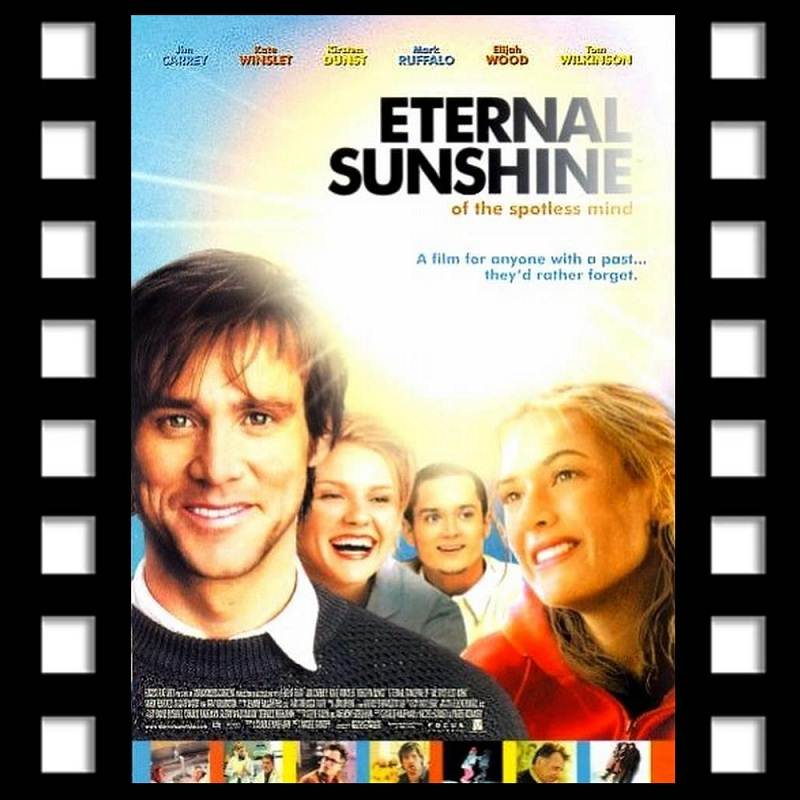

Mierzwiak ( Tom Wilkinson), who is alarmed, as well he might be. They're jumping on his bed in their underwear when Joel's mind goes "off the map." His head is encased in a sort of aluminum football helmet attached to an alarmingly small laptop controlled by a technician named Stan ( Mark Ruffalo), who drinks beer with his co-worker Mary ( Kirsten Dunst). It also becomes clear, later, that when the wounded Joel discovered what Clementine did, in revenge he sought to wipe her from his memories. In fact they have met before and were in love, but it ended badly and they both had the memory erased. He goes home with her and they sleep together. A solemn, worried man named Joel ( Jim Carrey) takes a train for no reason and at a station encounters Clementine ( Kate Winslet), who thinks they've met before.


Indeed, it's a film built around Meet Cutes, some not so Cute. All we know is that an obscure company in Boston offers to erase your memories of a particular person or anything else. "Eternal Sunshine of the Spotless Mind," like "Malkovich," invents a fantastic device for its peculiarities, and wisely declines to explain it. These sound like topics for a class in evolution or neuroscience, but Kaufman and his directors structure them like films that proceed quite clearly along paths we seem to be following, until we arrive at the limits of identity. He attempts no less than to dramatize the ways in which our minds cope with our various personas and try to organize aspects of our experience into separate compartments we can control. Kaufman's first film as a director, " Synecdoche, New York" (2008), is his most challenging. In George Clooney's " Confessions of a Dangerous Mind" (2002), he shows the game show creator Chuck Barris leading a double life as a deadly CIA assassin (Barris believes this story is factual). Nurture theories of our behavior: Do we start this way, or do we learn it? Jonze's "Adaptation" (2002) contrasts the physical evolution of orchids (which assume fantastic forms to earn a living) with identical twins, one who writes from his nature and the other from his nurture. Michel Gondry's "Human Nature" (2001) is concerned about the Nature vs. His screenplay for Spike Jonze's " Being John Malkovich" (1999) involved a way to spend 15 minutes inside the mind of another person. Kaufman, the most gifted screenwriter of the 2000s, is concerned above all about the processes of thought and memory. Consider how much information about evolution he embeds in his screenplay for " Adaptation." Kaufman has that knack of painlessly explaining his subject right there on the screen. She quotes as she's trying to impress a boss she loves. The audience needn't know that many may know no more than she does when she calls the author Pope Alexander. This passage comes well into a very long poem which I doubt the character Mary would have memorized. The world forgetting, by the world forgot.Įach pray'r accepted, and each wish resigned… In his screenplay for the film, Charlie Kaufman has a character quote some lines by Alexander Pope:


 0 kommentar(er)
0 kommentar(er)
